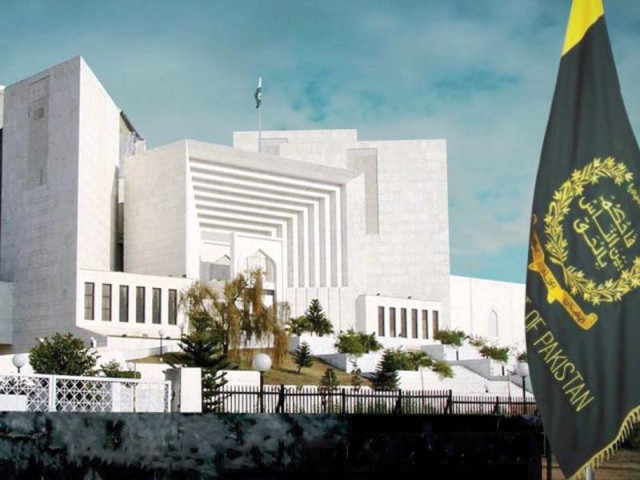Lawyers react on amendment to revise executive magistracy
Revision of executive magistracy would be in violation of basic structure of the constitution and should be resisted

The Supreme Court of Pakistan. PHOTO: EXPRESS
They have vowed to resist the revision of the ‘colonial era’ governance model at every step.
Supreme Court Bar Association Secretary Aftab Ahmad Bajwa said Article 175 (iii) of the Constitution and various SC judgments had clearly demonstrated that executive and magistracy must be separated.
The revision of executive magistracy would be in violation of this article. Moreover, the step would lead to many human rights violations including Article 10 (A) and Article 4 of the constitution of Pakistan.
Aftab said that he would oppose the steps as a lawyer, adding that he would raise the issue at the executive committee for decision and action.
Thar deaths case: SHC seeks copy of Supreme Court's order
Advocate and human rights activist Saroop Ijaz said that the step would be ‘retrogressive’ and lead us backwards in time.
Exercising of judicial powers by executive was a ‘colonial’ practice that was overhauled through the Police Order 2002 and local government acts.
He added that the challenges faced had changed drastically over time and to combat these challenges, and that the police should be empowered and made accountable.Senior Advocate Azhar Siddique said that revision of executive magistracy would be in violation od the basic structure of the constitution and should be resisted at all costs.
Pakistan Peoples’ Party Central Information Secretary Chaudhry Manzoor also opposed the step, stating that he was ideologically clear on the separation of executive from the judiciary.

He said his party advocated the checks that were introduced in the Police Order 2002 were effective and that they demanded a move towards the metropolitan model of policing, adding there was no need to revise executive magistracy as a check.
Supreme Court’s non-development budget up 6%
Ejaz Chaudhry, a member of Pakistan Tehreek-e-Insaaf, said that he also considered the step to be wrong.
Justice (retd) Iftikhar Ahmad Cheema, a PML-N MNA, said executive magistracy had been an effective system of governance during the British colonial era. He added that they had powers to conduct hearing of minor offences and award punishment.
A magistrate could even award sentences up to seven years imprisonment.
He said that there was a possibility of the amendment being struck down if challenged in the Supreme Court and added that he would oppose the bill in the committee.
MNA Chaudhary Muhammad Ashraf of the PML-N, a member of the committee on law and justice, said that the revision of executive magistracy was important because many serious issues had arisen after separation of the judiciary from executive.
He added that executive magistracy was mandatory for summary power trials. Elaborating on the concept, he said that the executive had to impose fines to some parties on various violations, but could not do so without executive magistracy.
Similarly, during the performance of duties of an executive official, a situation may arise in which police force needed to be authorised. In such a situation, the police would do utilize executive magistracy to appropriately deal with the situation.
Published in The Express Tribune, June 9th, 2017.


















COMMENTS
Comments are moderated and generally will be posted if they are on-topic and not abusive.
For more information, please see our Comments FAQ